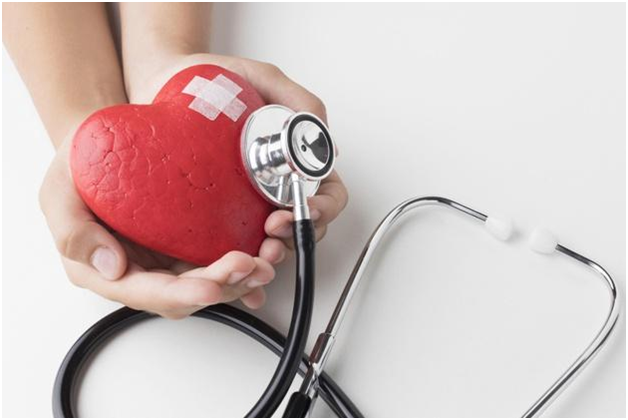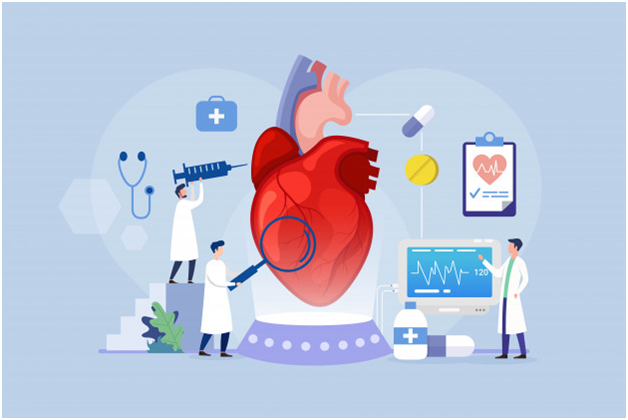Things that You Need to Know About Heart Disease

Cost of Performing an Open Heart Surgery in India
March 20, 2021
What are Treatments for Heart Failure?
March 20, 2021What is heart disease?
The word “heart disease” refers to a wide range of heart disorders. Coronary artery disease (CAD), which affects blood flow to the heart, is the most common form of heart disease in the United States. A heart attack may be caused by a reduction of blood flow.
Who can get heart disease?
According to the Centers for Disease Control and Prevention (CDC)Trusted Source, heart disease is the leading cause of death in the United States. Heart disease is the cause of one out of every four deaths in the United States. Every year, approximately 610,000 people die as a result of the disease.
Heart disease doesn’t discriminate. It is the leading cause of death for a variety of people, including whites, Hispanics, and African-Americans. Heart disease affects about half of all Americans, and the number is increasing. Learn more about the rise in the number of people suffering from heart disease.
Although heart disease is fatal, it is also preventable in the majority of cases. Early adoption of healthy lifestyle habits will help you live longer and have a healthier heart.
What are the most common types of heart disease?
The term “heart attack” refers to a variety of cardiovascular issues. Heart disease encompasses a wide range of disorders and conditions. The following are examples of different types of heart disease:
- Arrhythmia is a condition in which the heart beats irregularly. A heart rhythm abnormality is known as an arrhythmia.
- Atherosclerosis is a disease that affects the arteries. The hardening of the arteries is known as atherosclerosis.
- Cardiomyopathy is a disease that affects the heart. The heart muscles harden or weaken as a result of this disease.
- Heart defects that are present at birth. Heart abnormalities that are present at birth are known as congenital heart defects.
- Coronary artery disease (CAD) is a condition that affects the (CAD). Plaque accumulation in the arteries of the heart causes CAD. Ischemic heart disease is another name for it.
- Infections of the heart. Bacteria, viruses, and parasites may all cause heart infections.
The word “cardiovascular disease” refers to heart diseases that affect the blood vessels directly.
What are the most common symptoms of heart disease?
Heart disease may also be “silent,” with no symptoms or signs until a person has a heart attack, heart failure, or an arrhythmia. Symptoms that may occur as a result of these events include:
- Chest pain or irritation, pain in the upper back or abdomen, indigestion, heartburn, nausea or vomiting, intense weakness, upper body discomfort, dizziness, and shortness of breath are all symptoms of a heart attack.
- Fluttering sensations in the chest are known as arrhythmia (palpitations).
- Shortness of breath, exhaustion, or swelling of the feet, knees, thighs, belly, or neck veins are all symptoms of heart failure.
What are the factors that put you at risk for heart disease?
Heart disease is exacerbated by high blood pressure, high cholesterol, and smoking. At least one of these three risk factors is present in nearly half of all Americans (47 %). 2 Heart disease can also be exacerbated by a variety of medical conditions and lifestyle decisions, like
- Diabetes is a disease that affects people
- Obesity and being overweight
- Unhealthy eating habits
- Inactivity on the physical level
- Excessive alcohol consumption
What is cardiac rehabilitation?
Anyone recovering from a heart attack, heart failure, or some forms of heart surgery should consider cardiac rehabilitation (rehab). Cardiac rehabilitation is a supervised programme that involves a variety of activities.
- Physical activity is essential.
- Education on how to live a healthier lifestyle, including how to eat well, take medications as prescribed, and stop smoking.
- Counseling to help people cope with stress and improve their mental health.
Your health care staff, exercise and diet consultants, physical therapists, and psychologists or mental health providers may all be able to assist you during cardiac recovery.
What should I do to reduce my chances of developing heart disease?
Fortunately, there are a number of things you can do to lower the risk of heart disease:
- Maintain a healthy blood pressure level.
- Maintain a healthy cholesterol and triglyceride level.
- Maintain a balanced body weight.
- Maintain a balanced diet.
- Get any exercise on a daily basis
- Alcohol should be consumed in moderation.
- Please don’t smoke
- Take care of your pressures.
- Take care of your diabetes.
- Make certain you get enough rest.
What are the treatment options for heart disease?
- Treatment for heart disease is mostly determined by the type of heart disease and how far it has advanced. If you have a heart infection, for example, the doctor is likely to prescribe antibiotics.
- If you have plaque buildup, they will use a two-pronged approach: they may recommend a medication to help reduce the risk of more plaque buildup, and they may also work with you to make healthier lifestyle improvements.
Treatment for heart disease falls into three main categories:
Lifestyle changes
Heart disease can be avoided by adopting a healthy lifestyle. They will even assist you in treating the disease and preventing it from worsening. One of the first things you would want to improve is your diet.
Reduce the risk of heart disease complications by eating a low-sodium, low-fat diet rich in fruits and vegetables. The DASH (Dietary Approaches to Stop Hypertension) diet is one example.
Similarly, physical exercise and stopping smoking will aid in the treatment of heart disease. Reduce the alcohol intake as well.
Medications
Certain forms of heart disease can necessitate the use of medication. Your doctor can prescribe a medicine to treat or manage your heart disease. Medications can be used to reduce or eliminate the risk of complications. The prescription you’re given is determined by the type of heart condition you have. Find out more about the medications that can be used to treat heart failure.
Surgery or invasive procedures
Surgery or a surgical procedure may be required in certain cases of heart disease to treat the condition and prevent symptoms from worsening.
For example, if plaque accumulation has completely or nearly completely blocked your arteries, your doctor can place a stent in the artery to restore normal blood flow. Your doctor’s procedure will be determined by the type of heart attack you have and the degree of heart damage.
Cardiac surgeon in Mumbai
In Mumbai, Dr. Kamlesh Jain is the best cardiac surgeon. He completed his specialization at the University of Pune and his superspecialization in cardiac surgery at the University of Mumbai. He has 23 years of experience in the medical profession. He’s performed almost 8000 open-heart surgeries.He has extensive experience in adult and pediatric cardiac surgery, vascular surgery, minimally invasive cardiac surgery, coronary artery bypass surgery, vascular interventions and TAVI surgery in Mumbai.




